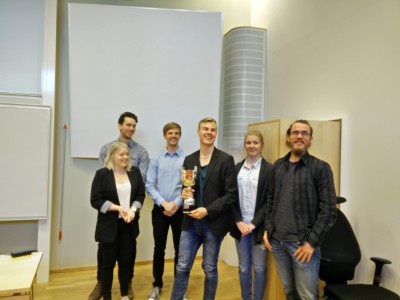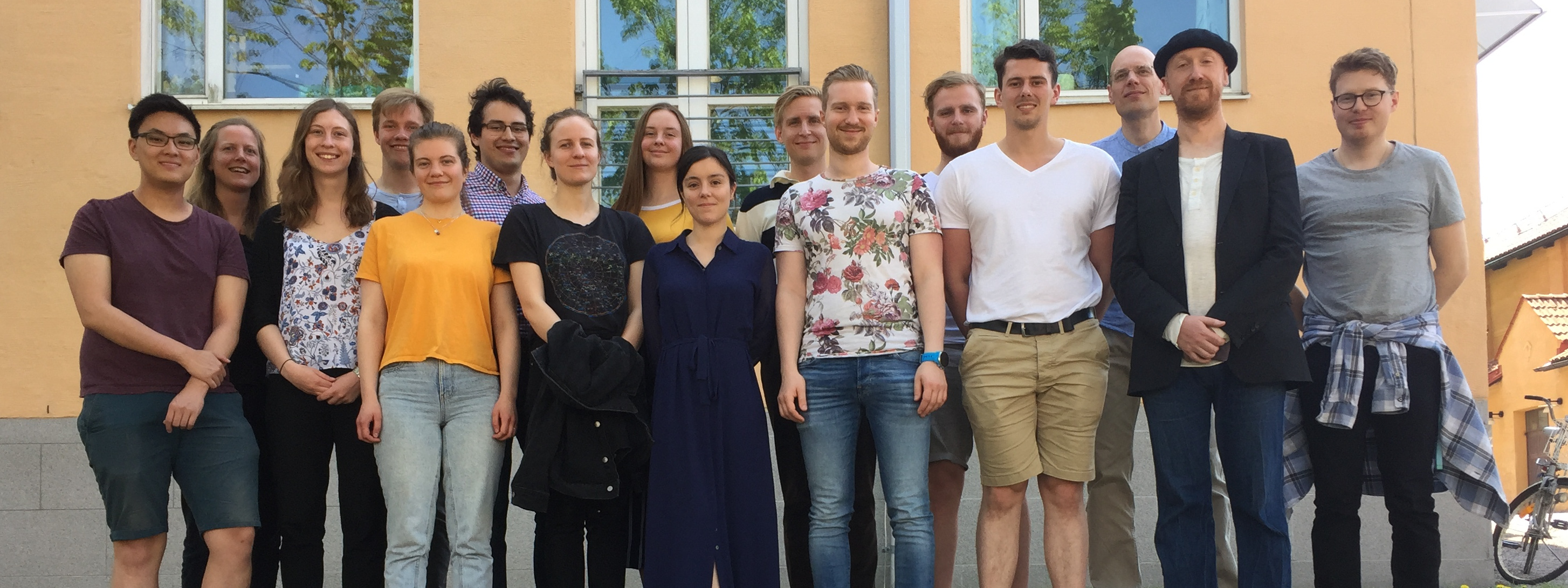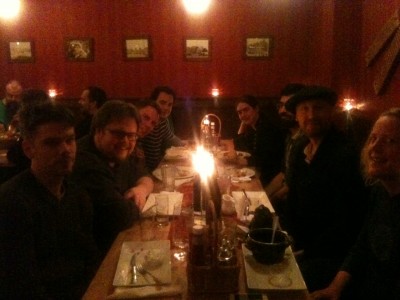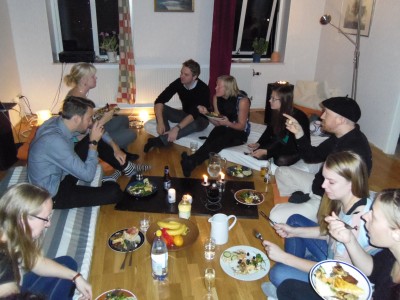For the
last couple of years the students in Engineering Biology (TB) have done their bachelor’s
projects under our supervision. This year is no different! Right now the
students are finishing phase 1, where they are learning about systems biology
and how to implement, optimize, and analyze models. They are also right now
meeting their customers for the projects they will start on later this spring.
This year
we have four exciting projects. In the first project, the students will attempt
to unravel new insights of intracellular signaling in different tissues. They
will at the same time attempt to bridge the understandings of insulin signaling
with adrenergic signaling. The end-goal is to gain new knowledge of metabolic
and cardiovascular diseases.
In the
second project, the insulin-glucose dynamics at the whole-body level is the
focus. Three subgroups will work with variating glucose levels in the Intensive
Care Unit (ICU), the interplay between insulin, glucose and NEFA, and the long term
effects of antioxidants respectively.
In the third project, five students will work together to understand
important aspects of the immune system. By modeling both the transcription of
genes within T-cells, and by bench marking the algorithms to do so, important
aspects of diseases, e.g. allergy, can be explained. This work is
potentially important in a wide variety of applications, both for drug
development, diagnosis, and for understanding of the pathology involved in a
wide variety of diseases.
In final
project, five students will work in a combined effort to further improve the
current understanding of the fMRI-BOLD response and its underlying neurovascular coupling.
They will contribute towards explaining current research questions such as
blood flow regulation in ischemia patients, neural metabolism and potential
bio-markers for brain function. By this, we aim towards bridging the gap
between our modelling efforts and future clinical applications.
These projects
have been started already now but will take on full speed during the second
half of the spring. Three times the students will present their ongoing
findings, and during the final presentation this spring one group might find
themselves the winner of the yearly logo-competition.
 Last years winners of the prestigeous trophy: “Improvement of a Mathematical Liver Model for Diagnosis and Surgical Planning”
Last years winners of the prestigeous trophy: “Improvement of a Mathematical Liver Model for Diagnosis and Surgical Planning”
 Tomorrow, Friday the 13th, I will nail a second copy at IMT, with a bit more pomp and circumstance.
Tomorrow, Friday the 13th, I will nail a second copy at IMT, with a bit more pomp and circumstance.

 Last years winners of the prestigeous trophy: “Improvement of a Mathematical Liver Model for Diagnosis and Surgical Planning”
Last years winners of the prestigeous trophy: “Improvement of a Mathematical Liver Model for Diagnosis and Surgical Planning”



